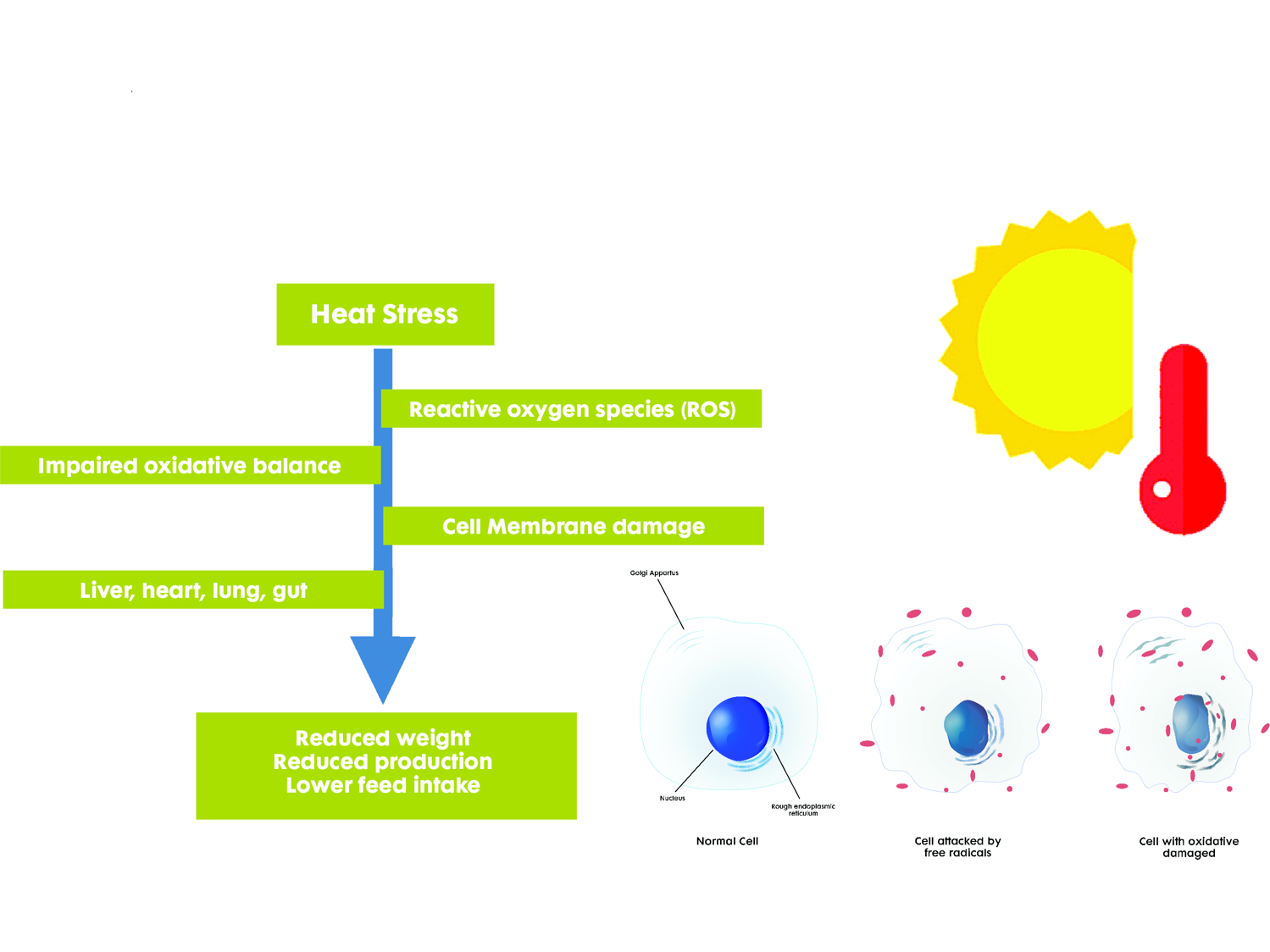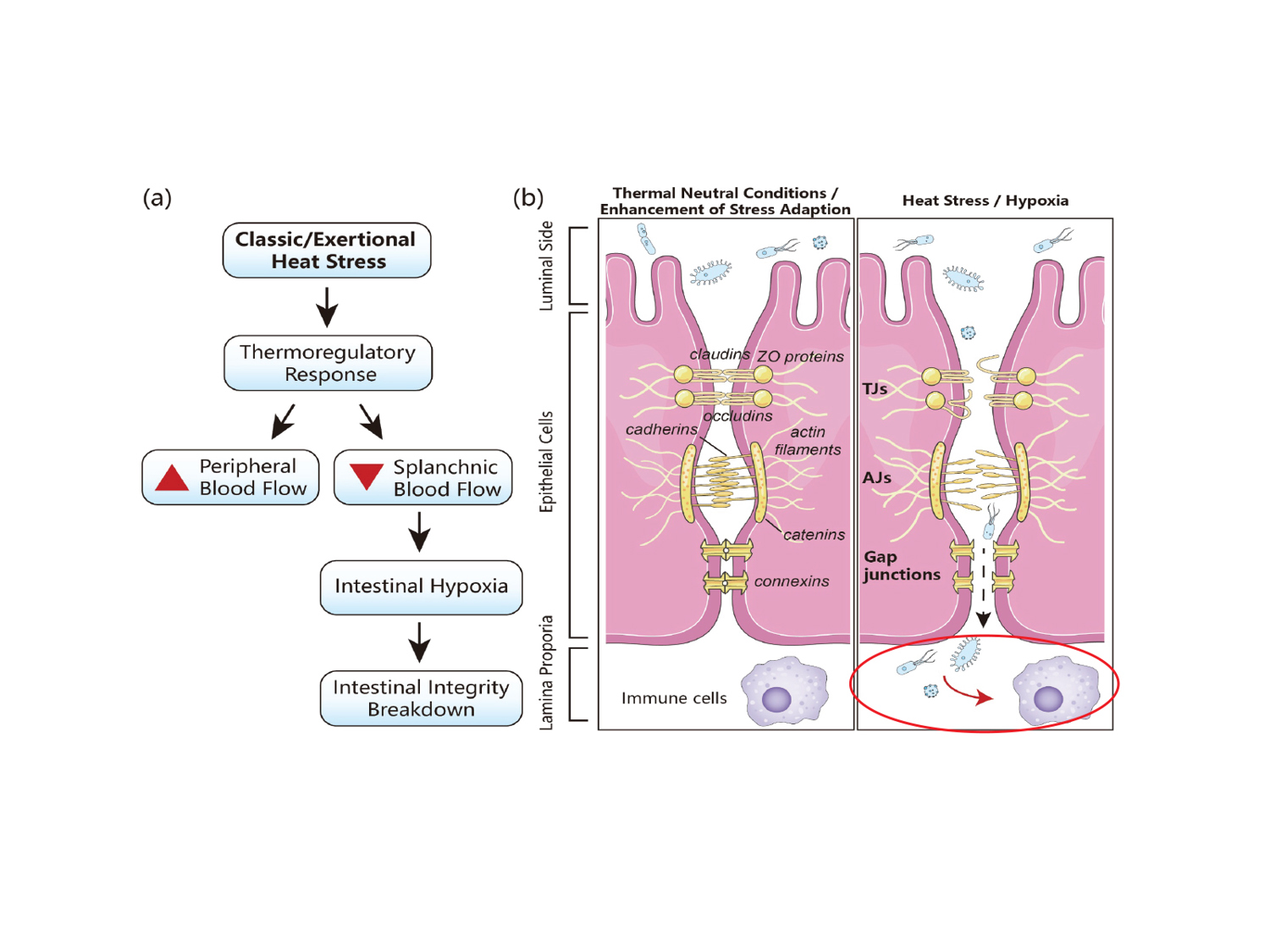Reducing oxidative stress:
When blood flow shifts to peripheral tissues during heat stress, internal organs, including the intestines suffer from oxidative stress. Feeding antioxidants and osmolytes can mitigate this problem. However, antioxidant sources used must have a strong potential to neutralise the free radicals that cause oxidative stress. Vitamin E is typically used in animal diets during heat stress, but has relatively little effect and works only in a lipid medium. Polyphenols are considered natural substances able to induce strong effects against free radicals generated in the GIT and throughout the body during heat stress conditions. The most effective polyphenols have higher bioavailability and are active in both lipid and water-based tissues. Trouw Nutrition developed AOmix, a feed additive comprised of highly bio-available polyphenols with potent antioxidative properties.


